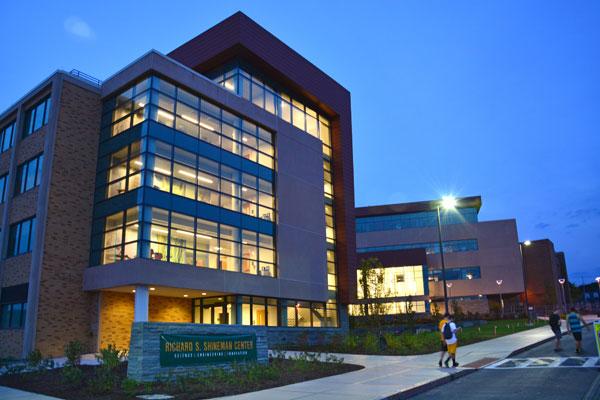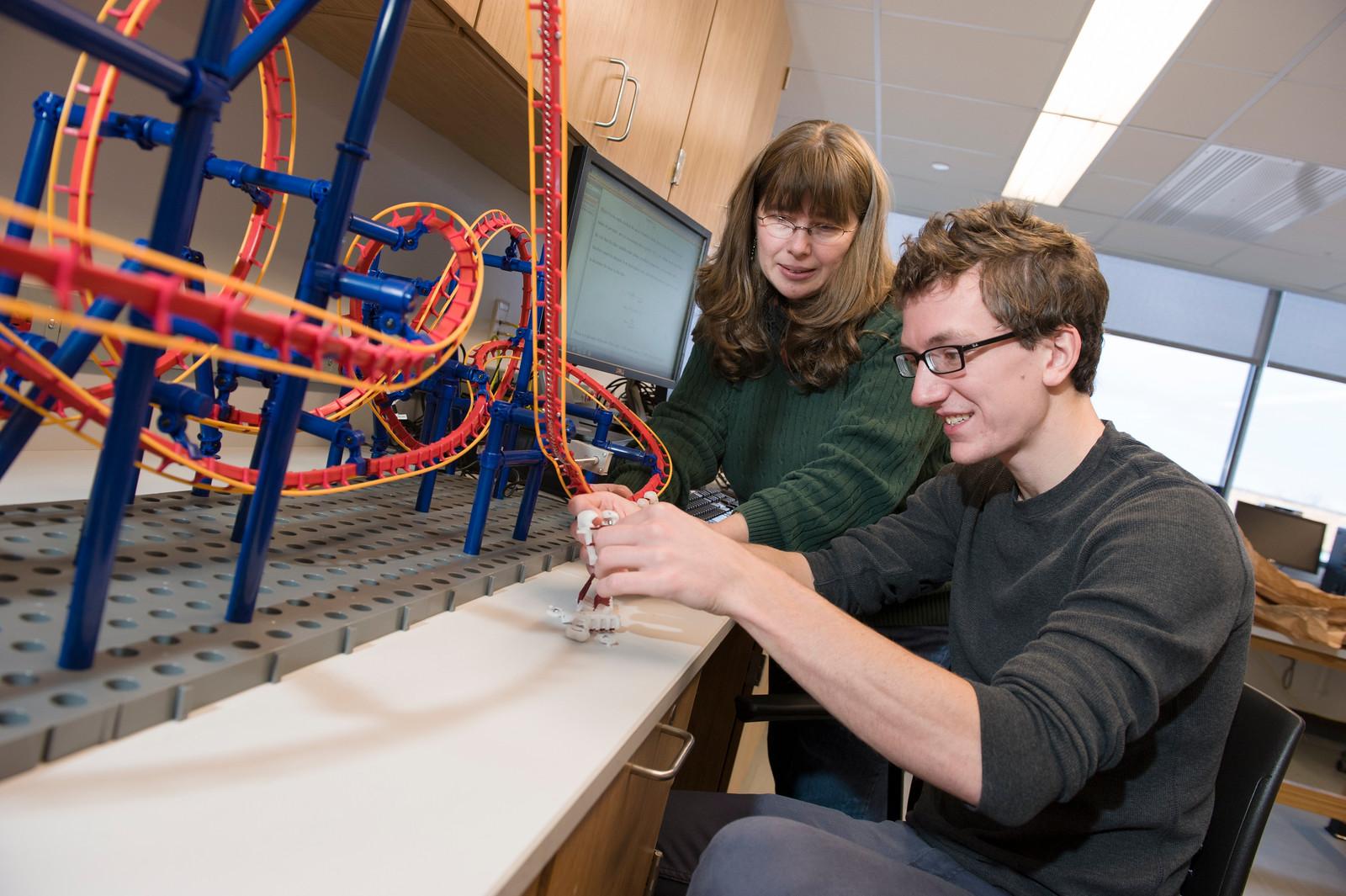Physics
Physics is a basic natural science that tries to explain the workings of the Universe. This scientific study of energy and matter includes energy can take the form of electricity, magnetism, light, heat, gravity and pretty much anything else you can think of, and matter in the form of atoms, electrons, photons, people, cars, buses, buildings, airplanes, rockets, planets, stars, galaxies and almost anything else. Physics is at the core of modern science, with applications in all aspects of modern life including engineering, medicine and computing.
Students with a physics degree go on to work in engineering, finance, the health industry and many other fields. A physics degree provides evidence to an employer that you have a critical, logical and systematic way of thinking that can tackle a wide range of problems. We provide research opportunites around the world, including through our Global Lab partnerships in Brazil, India and Taiwan.
Our department offers degree programs in physics, applied physics, a physics education certification track and minors in both physics and astronomy. We are committed to preparing students for the challenges of the 21st century through a rigorous curriculum that emphasizes active and hands-on learning experiences in experiment, theory and computation.
Housed in the new Shineman Center, the department has state-of-the-art experimental and computational facilities, with modern teaching laboratories in optics, quantum physics and nanotechnology. The department also operates the Rice Creek Astronomical Observatory with a 16-inch reflecting telescope and 2 CCD cameras.
We have dedicated, enthusiastic and scholarly faculty focused on providing students with a supportive atmosphere to maximize their potential. We involve undergraduates in front-line research. In addition to opportunities within the department, we have helped a number of students undertake physics research experiences abroad at leading research driven institutions in Brazil, India and Taiwan. The department has had continuous funding from the National Science Foundation for the last six years.
Physics students have published papers in the peer-reviewed literature, and given talks and posters at leading regional, national and international conferences. Many have won awards for these presentations. Graduating students have gone on to graduate school at Dartmouth, Clarkson, the University of Massachusetts and RIT, among others. Others have gone on to work in Intel, K-12 teaching, software engineering and the finance industry.
Research opportunities are available in astrophysics, chemical physics, condensed matter physics, history of science, nanotechnology, nuclear physics and physics education. The department houses a nanotechnology laboratory, a SQUID and RF room, nuclear physics detectors, a vibrating sample magnetometer and advanced computer facilities. We also operate a digital planetarium with a strong public outreach presence.

Contact
Office: 294 Shineman
Hours: 8-11:45 am
Monday - Friday
Phone: 315.312.3044
physics@oswego.edu



